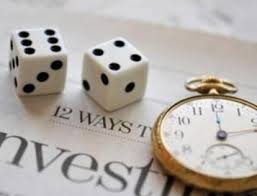The Nigerian Stock Exchange was every investors dream in 2013, returning 47.2% at the end of the year. It was ranked the best performing stock market in Africa and one of the best performing stock markets in the world. In 2014 however, it lost 16.14% and was ranked 3rd worst performing stock market by The Telegraph (UK) in 2014, with Columbia and Russia occupying the second and first spots, respectively. Currently the market year to date stands at 12.54%.
In 2014, with issues of insurgency, insecurity, institutionalized corruption, crude oil theft and the 2015 elections amongst others, foreign investors who constituted about 60% of investors in the Nigerian stock market became wary and started to pull out their funds. This of course had an adverse effect on the market. Since then bearish sentiments have ruled the stock market, with the All Share Index falling by almost 29% from January 2014 till date.
For domestic investors, wounds from the crash of the market in 2008 have not healed and a majority of domestic investors are institutional investors with a higher risk appetite. With the continuous fall in the value of shares on the exchange, domestic investors have cogent reasons not to invest in the stock market. But will this trend continue? And if it does, for how long?
I am of the opinion that in the next few months the market will bounce back and will eventually end the year in the positive. The fundamentals of the market indicate that the market is robust and should not be in the red zone, however, this is not the case. What is occurring in the market can be attributed to six major external factors which are; scepticism about the success of the 2015 elections, lack of a clear policy framework on the economy by the Buhari government, capital controls by the Central Bank of Nigeria for the management of foreign exchange, falling oil prices, the China economic slowdown and increasing interest rates in the United States of America.
The days that preceded the announcement of President Muhammadu Buhari as President-elect of Nigeria showed that a part reason for the depression in the market could be linked to the fear of violence after the elections. Investors enjoyed returns on investments as the market surged, buoyed by renewed confidence of investors. However, months after President Buhari took over power he is yet to construct a clear economic policy framework for the government and has not formed a cabinet. This has dampened investor’s confidence and has many of them watching and waiting from the side lines. However what can be gleaned from the behaviour of the President is that he is not bothered by pressure and has a clear plan on what to do and where to go, despite pressure from various individuals and bodies.
With price of oil in the global market tumbling, government revenues have followed suit. The government earns over 80% of its revenue from selling crude oil and the price of oil has declined by almost 60% in the last nine months. Currently the price of oil is $3 below the benchmark price set for the 2015. This has caused the CBN to create a foreign exchange management programme to control liquidity in the foreign exchange market. Already, the CBN has excluded 40 products from the list of goods that can access foreign exchange. The in effect has slowed down the devaluation of the naira. Foreign investors have expressed dismay at this and only last week, JP Morgan decided to de-list Nigerian government bonds from its emerging markets index. Foreign investors require a stable currency to assure them of predictable returns on their investments, allowing the currency to be market determined will not guarantee this. Also, with Nigeria being an import dependent economy, allowing her currency to fall freely will hurt her economy and her citizens.
It is noteworthy that the President has reiterated his desire to reduce Nigeria’s dependence on revenue from the sale of crude oil and a few days ago when on an official visit to France said Nigeria will not allow the Naira to be devalued further. Already, he has appointed credible and tested persons to head other revenue generating bodies such as the Customs service and the Federal Tax body, FIRS, while also appointing a new leader for Nigeria’s oil company, The NNPC. A known anti-corruption crusader, he has clamped down on corrupt individuals and the recovery of funds lost to corruption has started in earnest. These measures will yield positive results for the economy in the nearest future.
With economy of China slowing down and interests rates in U.S. increasing, a majority of investors will seek to shift their investments from an emerging economy to more stable economies. However, these economies cannot offer the rewards associated with investing in an emerging market. They cannot be too sure of how long the Chinese economy will continue to contract or how long the U.S. interest rates will continue to rise.
One thing is certain however, with the constitution of a Nigerian Federal cabinet, the charting of a clear economic course and the fundamentals of the Nigerian stock market remaining strong, the market will bounce back in the nearest future. A majority of stocks have bottomed out and are at their lowest possible prices based on the fundamentals of individual companies, the only way to go is up. This provides a good entry point for investors to take position and wait patiently.
The time to invest in the Nigerian stock market is now!

